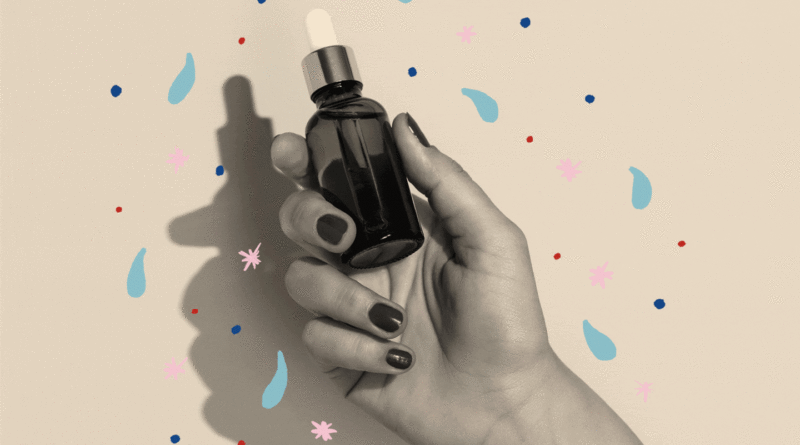Advice | These essential oils have health benefits backed by science
But there is sound medical evidence for several uses, including:
- Peppermint oil capsules for stomach ailments
- Lavender oil capsules or aromatherapy for sleep and anxiety
- Tea tree oil is used topically for acne
Essential oils are usually extracted through distillation processes that use steam to extract the oil from plants. You should never consume pure essential oils, such as those from a vial, as this can be toxic. Instead, look for products with essential oils intended for absorption, such as IBgard, a peppermint-rich product for irritable bowel syndrome.
Likewise, avoid using pure essential oils directly on the skin. Instead, dilute them to 1-5% concentration using your favorite lotion or another carrier oil, such as olive oil. This helps reduce the risk of contact dermatitis.
Peppermint oil
The active ingredient of peppermint is menthol, which relaxes the skeletal muscles of the human intestine. A 2022 review of 10 randomized controlled trials looking at peppermint oil infusion to treat symptoms of irritable bowel syndrome found it to be more effective than placebo (many of the studies were industry-sponsored) .
Peppermint can be very helpful for stomach aches, although be warned, it can worsen heartburn symptoms. Peppermint is recommended by the American College of Gastroenterology, and I find it reasonable to try for mild symptoms, although many patients with irritable bowel syndrome and similar problems may ultimately benefit from other treatments. I generally recommend trying one capsule of peppermint oil three times a day.
Lavender oil
It is thought that lavender has its effects on sleep and anxiety on our central nervous system in a way similar to that of pregabalin, which is a pain reliever.
In Germany, a medicine containing lavender oil, silexan, is approved for anxiety-related symptoms. Several long-term controlled trials have shown lavender capsules to improve anxiety symptoms both compared to placebo and, in the case of high-dose silexan, compared to paroxetine, the most commonly prescribed medication. used to treat depression. These studies were conducted primarily on women, and many were sponsored by the manufacturer.
A 2022 meta-analysis looking at essential oil aromatherapy on sleep quality among cancer patients found that lavender oil was moderately effective and more effective than other essential oils. , such as chamomile or orange. In the studies reviewed, lavender oil in aromatherapy was administered by massaging or inhaling directly after dilution – for example, placing the oil on a cotton ball that was kept around the neck of the patient. patient for 20 minutes.
It’s worth noting that studies tend to follow patients for only a few weeks at most so lavender oil can help as a short-term aid.
Tea tree oil
With tea tree oil, which has antibacterial properties when applied to the skin, two studies should be noted: One was a study of 5% tea tree oil from 1990 which was found to be as effective as 5 percent benzoyl peroxide for treating acne. the oil was slow to work. The second was a 2007 double-blind trial that found a 5 percent tea tree oil gel was more effective than a placebo in reducing the severity of acne. For some, tea tree oil irritates the skin, but for some acne sufferers who prefer natural options, the data is encouraging.
To try it for acne, apply a thin layer of 5 percent tea tree oil to the affected area twice a day and leave it for 20 minutes. After that, wash the area thoroughly with water.
Does it matter where to buy essential oils?
Essential oils are generally not regulated as drugs by the US Food and Drug Administration, so it can be difficult to know exactly what you’re getting when you buy over-the-counter or online. Look for an essential oil from a reputable company that has few, if any, additives that may irritate the skin.
What are the dangers of using essential oils?
In 2007, there was a series of small cases published in the New England Journal of Medicine linking gynecomastia – the enlargement of breast tissue – in young boys exposure to tea tree and lavender essential oil. It made headlines at the time, but larger peer-reviewed studies since then have failed to show a link.
There are a few caveats to keep in mind: Too many essential oils can make your skin more sensitive to sun damage, so I wouldn’t put anything on before going out. good. Several essential oils, including tea tree oil, are toxic to dogs and cats.
Avoid inhaling essential oils and keep your exposure to a minimum: Limited human data suggests that inhaling essential oil vapors for longer than an hour may be harmful to health. the beauty of the heart. Because of the possible irritating effects on the lungs, the American Lung Association does not recommend people with asthma or COPD to use essential oils.
In general, it is best to consult a health care provider before using essential oils, especially if you are pregnant or have young children.
What I want my patients to know
Essential oils have been used for thousands of years in healing and bathing practices in many cultures. I have no problem with my patients including oils in their personal care routine if doing so makes them feel comfortable. But to me, the more important question if you are suffering from poor sleep is not whether lavender essential oil will help your symptoms, but whether we can solve the underlying problem. Similarly, for anxiety, we still need to find a long-term solution.
#Advice #essential #oils #health #benefits #backed #science
